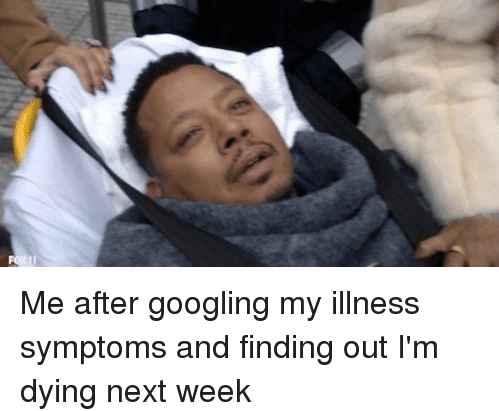“Google holds answers to countless queries, except answers to our prayers” Anonymous.
People often turn to Google for one reason or another. However, it’s important to recognize that googling symptoms can be sickening as it only leads to increased anxiety; it’s not wise!. Have you ever relied on ‘Dr. Google’ for a medical diagnosis and probable remedies? If so, you may be experiencing cyberchondria. Cyberchondriacs repeatedly search online for details about real or imagined symptoms, only to increase health anxiety and sickness instead of finding reassurance. True peace of mind comes from a professional check-up—not an internet search.
Why people prefer googling symptoms
People often search ‘google’ their symptoms online for several reasons. One significant factor is convenience—it’s fast and simple, especially when visiting a doctor isn’t immediately feasible. Curiosity also motivates individuals to explore potential causes of their symptoms and learn more about their health. Additionally, many people seek reassurance; finding that symptoms align with minor issues can provide peace of mind. Preparation is another key driver, as some prefer to gather information beforehand to ask better-informed questions during a doctor visit. Lastly, financial considerations sometimes lead people to self-diagnose online as a cost-saving measure before pursuing professional medical advice.
How accurate are online symptoms checkers?
One man searched Google for symptoms like vomiting, headache, nausea, and abdominal discomfort, only to discover a bizarre conclusion—he was supposedly heavily pregnant. This highlights the potential inaccuracies of symptom-checking online. In fact, a study revealed that advice to seek urgent medical care appeared in search results only 64% of the time when looking up acute symptoms that demand immediate attention. Trusting search engines for medical guidance can be risky and unreliable. For genuine health concerns, consulting professionals is always the safest choice.
In addition to using Google, many people rely on symptom checkers to diagnose their conditions. While these tools may encourage users to seek advice from a physician, they often fail to provide accurate or reliable diagnoses. Furthermore, the recommendations offered are not always valid or sufficient. A senior author, Dr. Ateev Mehrotra of Harvard Medical School, notes that symptom checkers can be helpful for individuals deciding if they need prompt medical attention. However, he advises caution—users should not treat the information from symptom checkers as absolute truth. Consulting a healthcare professional remains the safest course of action.
Recognizing cyberchondria
Cyberchondria is characterized by an overwhelming preoccupation with common physical symptoms, often associating them with severe or deadly conditions. For instance, someone might search for “headache” online and encounter a diagnosis like a brain tumor. In reality, the headache could simply be a result of fatigue, easily alleviated by rest. Yet, the focus remains on the worst-case scenario, escalating anxiety and fear.
Psychologists identify several signs of cyberchondria:
- Spending 1 to 3 hours daily searching online for symptoms.
- Fearing multiple serious diseases simultaneously.
- During peak anxiety, checking symptoms 3 to 4 times a day.
- Experiencing increased worry or stress after online searches.
- Maintaining medically stable health despite vague symptoms.
- Struggling with interference in daily life and routine activities.
Recognizing these patterns and seeking professional guidance can help alleviate the negative impacts of cyberchondria.
What are the consequences of cyberchondria?
Relying on online information for health concerns comes with significant risks. The information found may often be unreliable or inaccurate, leading to misinterpretation and false conclusions. Cyberchondria behavior, characterized by excessive online symptom-checking, can heighten anxiety and stress levels. Additionally, some websites claiming to offer medical solutions may exploit vulnerable individuals for monetary gain.
Self-diagnosis is another issue, as it often leads to self-prescriptions with over-the-counter medications, posing potential health risks. Cyberchondriacs may spend over three hours daily researching diagnoses and treatments for perceived symptoms. This excessive time online not only decreases productivity but also strains relationships, work performance, and income due to elevated anxiety.
Googling symptoms can lead to mistrust in medical professionals, as individuals may start to rely more on online information than expert advice. This mistrust often arises when the information found online conflicts with a doctor’s diagnosis. However, unlike internet searches, medical professionals provide personalized, accurate evaluations, ensuring effective treatment and care.
Furthermore, this behavior increases the frequency of hospital or clinic visits, leading to unnecessary medical costs from repeated consultations and investigations. Seeking professional medical advice remains the safest and most reliable approach to addressing health concerns.
Instead of googling your symptoms, take these steps:
- Consult a Healthcare Professional: Reach out to a doctor or medical expert for accurate and personalized advice.
- Use Reliable Sources: If you need to research, stick to trusted medical websites like Mayo Clinic or WebMD.
- Note Symptoms Clearly: Write down your symptoms, their duration, and any relevant details to share during a professional consultation.
- Avoid Overthinking: Resist the urge to assume the worst about your symptoms; focus on facts rather than speculation.
- Practice Self-Care: In cases of minor symptoms, rest, hydrate, and maintain a balanced diet to aid recovery.
Note: Trusting qualified professionals is always safer and more effective than relying on online symptom searches.
How to Manage Cyberchondria
Limit Online Searches: Allocate specific periods for health-related research—perhaps 15–30 minutes maximum—to avoid overthinking or spiraling into worry. This habit helps maintain focus, reduces stress, and fosters a healthier relationship with online health information.
Use Trusted Sources: Rely on trusted medical websites, such as Mayo Clinic or government health sites, to ensure you access accurate and reliable health information.
Delay the Urge: When the urge to search symptoms arises, pause and delay the action. Taking this step can help disrupt the cycle of compulsive checking, allowing you to focus on managing your concerns more calmly and effectively.
Focus on Self-Care: For minor symptoms, prioritize simple self-care measures like resting, staying hydrated, and practicing relaxation techniques. These steps can often ease discomfort and prevent unnecessary worry or premature assumptions about serious conditions. Focusing on self-care allows you to address symptoms calmly and responsibly.
Seek Professional Advice: Consult a healthcare provider for accurate diagnoses and reassurance instead of relying solely on online in Reach out to a healthcare provider for accurate diagnoses and professional reassurance. They can provide personalized medical advice that online information cannot offer, ensuring your concerns are addressed effectively and safely. formation.
Practice Mindfulness: Practice mindfulness or stress-reduction techniques, such as meditation, deep breathing, or yoga, to help alleviate anxiety related to health concerns. These activities promote relaxation, improve mental clarity, and reduce the tendency to overanalyze symptoms, fostering a calmer and more balanced approach to managing your well-being.
Educate Yourself About Cyberchondria: Gaining a clear understanding of the condition is essential for recognizing its patterns and triggers. Awareness allows you to identify behaviors associated with it and take proactive steps to manage and control its impact. Knowledge empowers you to make informed decisions and adopt healthier coping strategies.



